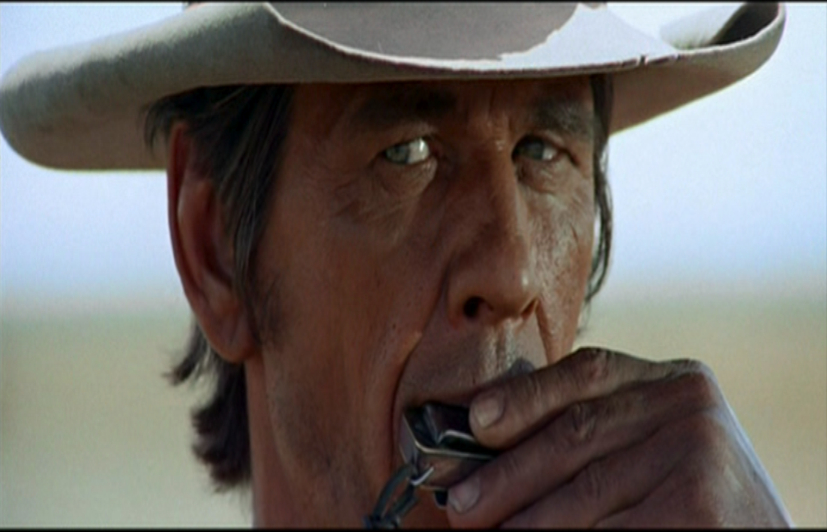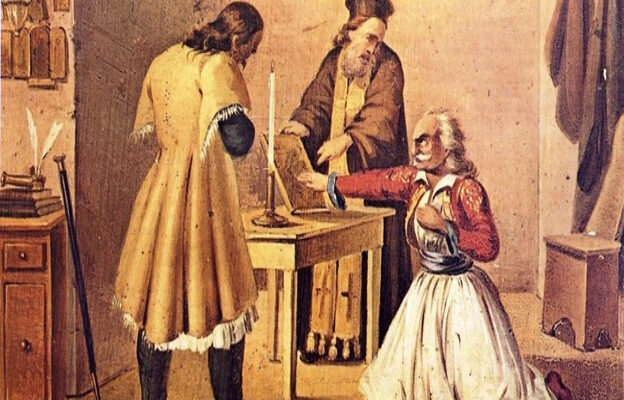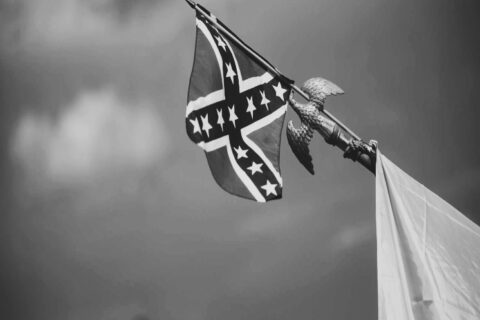Greece is very commonly thought of as an exceptionally old nation and for good reason. The most famous Greeks to ever live – Socrates, Plato, Aristotle, and Alexander the Great – all lived in the centuries before Christ. But, in many ways, Greece is also a relatively young nation, only dating back to 1821 with the beginning of the Greek War for Independence, even this is controversial as independence would not be fully reached until 1832. “Wait! That is not fair!” you might exclaim. Adding further that, “This is just when the modern state of Greece emerged, but the nation of Greece is much older.” After all, the Irish nation existed well before the Easter Rising in 1916, and that is certainly a point I am sensitive about as a Southern Nationalist. Though an independent Dixie does not currently exist, Southerners are their own people. So, surely these same principles must apply to the Greeks as well.
The answer, though, is much more complex and by exploring this we can gain valuable insight into the idea of a “national rebirth” that can greatly help in the Southern Nationalist struggle to rebuild a Southern national identity. There were Greeks they did not really identify as Greek, rather they identified as Romans of all things, including right up until the eve of the Greek War of Independence. When the Romans conquered what remained of the Greek kingdoms, they began to merge with a people they greatly admired. Roman and Greek culture were fairly similar, sharing the same Mediterranean, and the Romans even claimed to be decedents from the Greeks. The two cultures had been in contact for centuries. Famously, the Romans even took on the Greek pantheon of gods and made them their own.
The Greeks actually benefited quite a bit from this arrangement. The Greek-speaking eastern half of the Roman Empire was always the wealthiest part of the Empire, eventually spurring Constantine to move the capital from Rome to Constantinople. When the Empire was eventually split, the Western Roman Empire soon fell, but the Eastern Roman Empire would continue on until its conquest by the Ottomans in 1453 AD, almost a millennia after the western half of the Empire collapsed. Remember, the hard and fast distinction between the Roman (i.e., Western) and Byzantine (i.e., Eastern) Empires are a product of the West. For the Greeks in the east, the Roman Empire continued to thrive. Thanks to that long history, Greeks began to think of themselves as “Romans” rather than “Greeks,” and would continue to do so even under the Ottomans.
But in the aftermath of the French Revolution and the Napoleonic Wars, a new force, romanticism, soon swept Europe. One of the key components of romanticism was the revival of nations that had long been conquered, such as the Poles, Czechs, and Greeks. Greek Nationalists began to encourage a revival of the Greeks thinking of themselves as Greeks. One of the critical ways this was done was by taking advantage of an already existing network. The Greeks have long been a people drawn to merchant activity and because of this, there were Greek communities that were spread throughout the Ottoman Empire.
What the Greek Nationalists did was create a group of “friendly societies” – particularly, the Society of Friends (also known as “Filiki Eteria”) – that would encourage Greeks to think of themselves as Greeks, even they did not live on the Peloponnesian Peninsula. In addition to shifting Greek identity away from being Roman to being Greek, this also created a vast network by which the nationalists could draw from. There are three main lessons Southern Nationalists can learn from the Greek experience.
The first lesson is that national identity can be brought back. The Greeks of Plato and Alexander thought of themselves as Greeks, and proudly so. Yes, they were loyal to Athens and Sparta (among others), but they still saw something special about being Greek, hence the mocking of all non-Greeks as “barbarians.” Centuries of Roman rule would shift that identity and they would consider themselves as Romans instead. Similarly, and until as recent as World War II, Southerners viewed themselves as Southerners before they identified as generic Americans. It was only after World War II that Southerners became “good Americans” as their primary identity. Taking from the Greek example, we must shift Southern identity back to being first and foremost centered around Dixie.
The second lesson is that there is no substitute for network building. Before the Greek War for Independence began, Greek Nationalists had already built a strong network by which they could draw from. Not only did this make it impossible for the Ottomans to stop the flow of support to the Greek rebels, it was also coming in every direction, the friendly societies also created a sense of unity among all the Greeks. One may not even live in Greece proper, but he was still a Greek even if he lived in Palestine and thus had a duty to aid in his nation’s fight for freedom. All this was made possible by the existence of friendly societies that encouraged and fostered this way of nationalistic thinking.
The third and final lesson is we must learn is to fly under the radar. Initially, the Ottomans just thought the friendly societies were simply social clubs and aid organizations. They gave the appearance as such, and they were not investigated until it was too late. Had the men who created the friendly societies used a more upfront name- i.e., Free Greece, then the Ottomans would have crushed these networks when they were still weak and in their infancy. Now, this is not foolproof, but an important example of this can be seen in Dixie’s own history, namely the Council of Conservative Citizens (“CCC”). Founded in 1985 from the ashes of the old Citizens’ Councils (they were never called the “White Citizens’ Councils,” that was made up by their enemies), the CCC enjoyed a great deal of semi-mainstream support, particularly during the 1990s, boosting numerous members of state legislators, especially in Alabama and Mississippi. This was done in part because their name sounded innocuous enough to allow them to go unnoticed. Had they used a more explicit name, this never could have happened.
Now, the CCC would eventually fall, thanks to one junkie murderer and a stroke of bad luck: the CCC happened to be the first website Dylann Roof came across when he Googled “black on White crime” and mentioned it in his manifesto. Yes, the CCC would decline, but in the 30 years between its founding and the Roof shooting, the organization was able to accomplish quite a bit of work, thanks in large part because they were careful to give themselves a name that made them sound like any run-of-the-mill conservative think-tank. That 30 years laid down a lot of groundwork.
Greece is a great example of how a nation can be reborn. Greece is a nation that is both very old and very young. But Greece could have been an example of a dead nation, a nation with a few Greek speakers but no national identity. This was changed by a series of actions by Greek Nationalists, the most important of which was the creation of friendly societies that gave the Greeks the network they needed to win the Greek War for Independence. Southern Nationalists must take from this example and build the networks needed to allow Dixie to eventually gain independence.







Hear, hear! Excellent article, sir.
My thoughts exactly!
Good points. There are a few things the CCC didn’t have to deal with to the degree we do though, like “Fusion Centers.” These deep state entities gather all data and communications and postings etc., etc., and run them through their AI super systems … so (((they))) already know who everyone is ( including us ), and they have dossiers on everyone that make those in the old German Stasi look like little post it notes.
However, we can still create a super south for a variety of reasons. I believe God wants it … and even most of the ( Stasi ), deep state wants it!!! ( The “restructuring” of America that is. ) Over 70 % of the people want it … and no one wants a Civil War or any idiot morons like Dillan Roof causing chaos. NOW is our time. It’s time for our Greece. And by the way, yes it’s Dixie … but the true Dixie is really bigger than the original because a LOT of southerners moved just outside the borders of the Confederate States to avoid some of the war. An “enlarged” Dixie is an accurate Dixie. The “whole” south … ( and nothing but the south so help us God. )
Network with fellow white southerners but when you don’t want the fusion’s listening in, you have to do like in the movie Good Fellas where one guy whispers in an ear … then he walks 6 feet over and whispers what that guy told him. Also regarding networking we need to connect places like this to things like Abbeville Institute ( see channel on Youtube. )
Better hurry though :
https://en-volve.com/2022/06/07/watch-mexican-president-to-meet-with-biden-to-discuss-integrating-countries-into-one-superstate-with-open-borders/
Social Life in Old Virginia Before the War
Family members
Page begins by describing the mistress, the most important figure on the plantation. Typically she ran the business side of it, and had an excellent memory for keeping track of paperwork and useful objects:
Had the papers been the lost sibylline leaves instead of old receipts and bills, and had the parcels contained diamonds instead of long-dried melon-seed or old flints, now out of date but once ready to serve a useful purpose, they could not have been more sacredly guarded by the mistress.
That’s merely the beginning. Page after page, he waxes most eloquent about her organizational abilities, her tireless work, her care for sick slaves, and her saintly character.
Then the author describes the master of the estate. From his facial expression, voice, and overall bearing he displayed confidence, steadfastness, and loyalty. This seriousness goes back to his ancestors, who risked it all in the American Revolution and then built the young country from scratch:
He had inherited gravity from his father and grandfather. The latter had been a performer in the greatest work of modern times, with the shadow of the scaffold over him if he failed. The former had faced the weighty problems of the new government, with many unsolved questions ever to answer. He himself faced problems not less grave. “
https://counter-currents.com/2022/06/thomas-nelson-pages-social-life-in-old-virginia-before-the-war/
hat was life like in the antebellum South? Obviously it’s going to be a matter of perspective. Thomas Nelson Page provided one such viewpoint, the type we seldom hear about lately. He was a lawyer in his early career and a diplomat later, but is best known as a writer. get book here: https://ia903105.us.archive.org/34/items/sociallifeinoldv1897page/sociallifeinoldv1897page.pdf
Those are three very good lessons that should be emblazoned into a group ethic, but I don’t think the third lesson is the final one. Surely there are many more, but I’d like to add another:
4) Patriarchy. This does not simply mean “men in charge, women submitting”. It means rule by a father/grandfather in the home and society rule by fathers/grandfathers. You cannot have patriarchy without fatherhood. Of course for us the society would have to be an underground subculture as you stated already. Our first job is to become the patriarchs of large families, then network those families where young and naive children, potentially rebellious youth and talkative women don’t need to know the whole story of what’s going on.